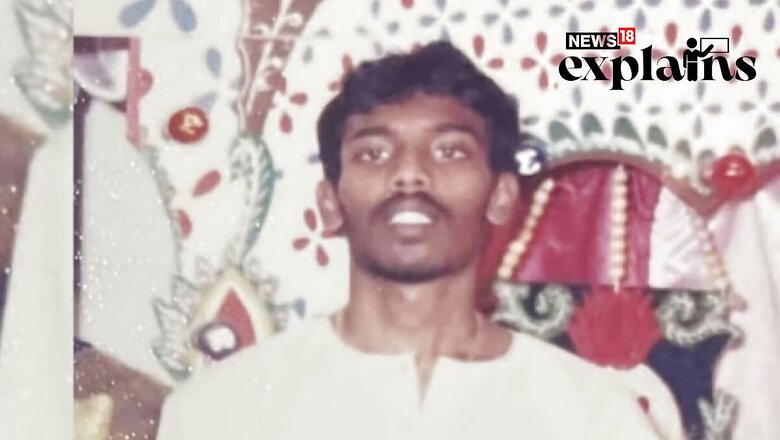
views
A 46-year-old Indian-origin man Tangaraju Suppiah was executed by Singapore authorities on Wednesday after being convicted of conspiracy to smuggle one kilogramme of cannabis. Despite requests for clemency from his family, campaigners, and the United Nations, his death penalty was implemented on Wednesday morning and his family was issued the death certificate.
Suppiah was executed despite a request from the United Nations Human Rights Office for Singapore to “urgently reconsider” as well as pleas from British businessman Richard Branson to postpone the execution. Read more on the story here
As per a report by BBC, activists claimed he was convicted based on flimsy evidence and had minimal legal representation during his trial. Singapore officials, on the other hand, claimed he was granted a fair trial and chastised those who questioned the courts.
Singapore has some of the most stringent anti-drug legislation in the world. It contends that these are an essential deterrent to drug crime, which is a big concern throughout South-East Asia.
Drug Laws in Singapore, Death Penalty Around World
Anyone caught trafficking, importing, or exporting certain quantities of illegal narcotics is sentenced to death under Singapore’s Misuse of narcotics Act, as per a report by CNN.
Traffickers who possess more than a particular amount of methamphetamine, heroin, cocaine, or cannabis face the death penalty. In Singapore, the heroin threshold is 15 grammes or above. In comparison, first-time offenders found trafficking 100 to 999 grammes of heroin in the United States risk jail terms ranging from 5 to 40 years. Longer and heavier punishments may be imposed if the dealing results in death or serious injury.
Singapore’s ruling party officials argue that the fear of capital punishment is important to keep the city-state from becoming engulfed in drugs in an area that is a global centre for the drug trade.
Singapore’s ruling party officials argue that the fear of capital punishment is important to keep the city-state from becoming engulfed in drugs in an area that is a global centre for the drug trade.
The United Nations Office on Drugs and Crime (UNODC) stated in May that the “scale and reach” of the methamphetamine and synthetic drug trade in East and Southeast Asia was “staggering.” According to a briefing note from the Asia and Pacific Amphetamine-Type Stimulants and Information Centre (APAIC), methamphetamine was the leading substance of concern in Singapore in 2021.
Seizures and methamphetamine use fell that year, according to APAIC, but heroin seizures reached a new high, the report says.
According to the BBC report, the country’s strict drug policies and usage of the death penalty put it at odds with advanced nations and others in the region. Malaysia, Singapore’s neighbour, eliminated obligatory death penalties earlier this month, claiming they were ineffective as a deterrence to crime.
Meanwhile, cannabis is no longer illegal in many parts of the world, including Thailand, where its trading is encouraged.
Harm Reduction International (HRI), a non-profit, non-governmental organisation says Singapore is one of 35 countries and territories in the world that sentence people to death for drug offences.
According to HRI, the United States and South Korea are the only two OECD member nations that have kept the death penalty for drug offences, but they have not carried out such executions in the recent five years, the BBC report says.
At least 579 people were put to death in 18 countries in 2021, 96 more than in the previous year, rights group Amnesty International says. But the uptick followed six years of marked decline in the number of executions.
“Although the global trend remains unmistakably in favour of abolition, the recorded increases in 2021 should act as a warning that it is not yet time to let off pressure,” Amnesty wrote in a May 2022 report.
Three countries accounted for 80 percent of all reported executions in 2021: Iran, with 314 (up 28 percent), Egypt with 83, and Saudi Arabia with 65 (an increase of 240 percent).
Amnesty’s figures do not include executions in China, believed to be the world’s biggest executioner, as well as North Korea and Vietnam. The three countries keep their data secret.
Drug Smuggling Sentence in India
Even in the 1950s, rules were in place to combat illicit drug trafficking in India. The Opium Acts of 1857 and 1878, as well as the Dangerous Drugs Act of 1930. However, all three of these laws have been repealed, and the Narcotics Drugs and Psychotropic Substances Act of 1985 has taken their place.
For minor amounts, six months in prison with rigorous punishments or a fine of up to Rs 10,000, or both. For less than commercial quantity but higher than small quantity, imprisonment for up to ten years and a fine of up to Rs. 1 lakh. For commercial quantities, imprisonment shall not be less than ten years but may be extended to twenty years, and a fine shall not be less than Rs. 1,00,000 but may be extended to Rs. 2,00,000, according to a report by Legal Services India.
Other Hardline Policies
The “war on drugs” strong drug policies implemented throughout the 1980s in the US, including mandatory minimum sentences for some drug-related offences, resulted in exceptionally high numbers of incarceration in the country, as per a report by the Guardian. The United States has more than 2 million individuals incarcerated by 2016.
Iran’s drug policy is complicated. It imposes draconian punishments for drug possession, which can end in public shaming, as well as drug trafficking. Drug-related offences account for over 70% of all executions in the country. However, the country, which has one of the worst rates of drug addiction in the world, has won accolades for progressive addiction-treatment initiatives, such as government-supported clean needle programmes.
Read all the Latest Explainers here



















Comments
0 comment